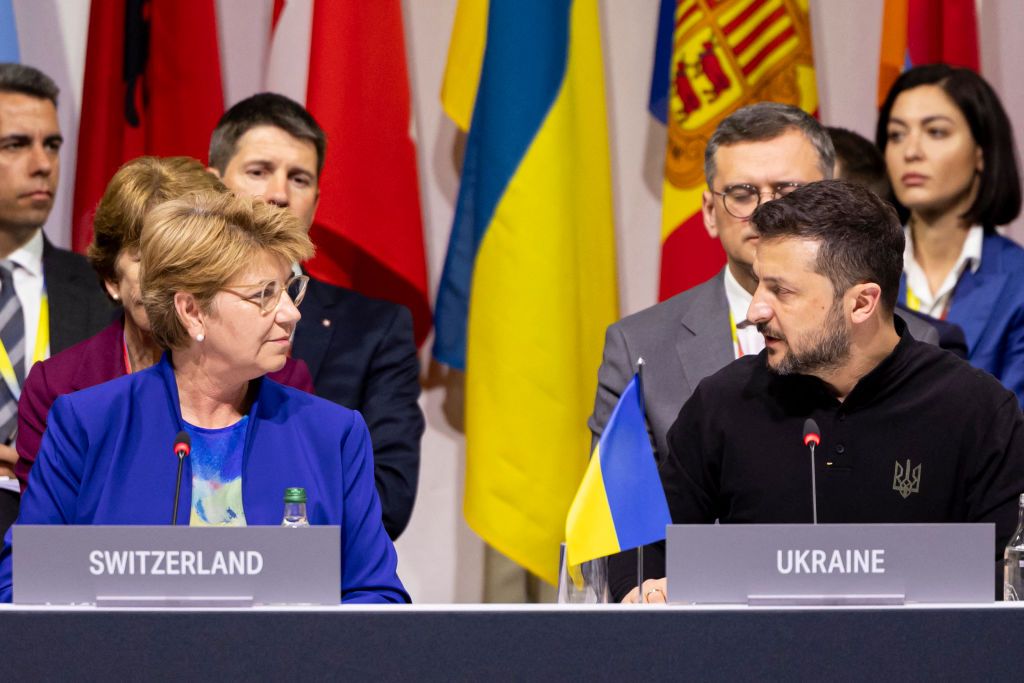Switzerland wants to discuss peace summit results with Russia, China, other non-participants

The Swiss government intends to discuss the outcomes of the global peace summit with countries that have not attended, including Russia and China, Swiss Foreign Minister Ignazio Cassis said on June 16.
Switzerland hosted the inaugural peace summit for Ukraine between June 15 and 16, with around 100 countries and organizations in attendance. Russia was not invited to take part, while China has rejected the invitation.
"We have a working embassy in Moscow, and every two weeks, we communicate with Russia's minister of foreign affairs, and we also have an intention to discuss the results of this conference with Russia," Cassis said at a press conference following the summit.
The minister said that Switzerland also intends to discuss the results with other nations "on whose doors we knocked, but they did not come, like, for instance, China."
Ukraine's Presidential Office said that the conference's participants aim to formulate a joint peace plan that would be presented to a Russian representative during a second summit.
The Swiss leadership previously said that a peace process without Russia's participation is "inconceivable" and that Russian President Vladimir Putin might be permitted to visit Switzerland for the second summit despite the International Criminal Court's (ICC) arrest warrant.
The ICC issued an arrest warrant against Putin and Russian official Maria Lvova-Belova in March 2023 over the forced deportations of Ukrainian children.
It is unclear whether Russia would be interested in participating in the future summit. It has repeatedly dismissed the inaugural conference as pointless and said it would not attend even if invited.
Speaking one day ahead of the summit, Putin laid out his own conditions for peace talks, namely Ukraine's full withdrawal from Donetsk, Luhansk, Kherson, and Zaporizhzhia oblasts, including territories currently held by Ukraine. Kyiv has rejected this ultimatum.
In turn, Ukraine sought to engage China in the peace summit but Beijing rejected the invitation, saying that its conditions for attendance were not met. U.S. National Security Adviser Jake Sullivan said that China has most likely declined the invitation at the Kremlin's request.
Beijing has instead lobbied for its own alternative peace plan, first presented by China and Brazil in May and calling for a conference recognized both by Ukraine and Russia.











